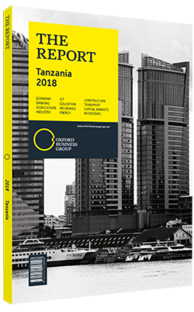Aranyak Sanyal, East Africa Cluster Head, Olam International: Interview

Interview: Aranyak Sanyal, East Africa Cluster Head, Olam International
What opportunities are there for potential investors in the agriculture sector?
ARANYAK SANYAL: We are more than optimistic about agriculture in Tanzania, largely because the economy has strengthened over the last two years, bringing opportunities with it. Crop diversification is also taking place, which will discourage any reliance on specific commodities. We believe there is a market for both domestic and multinational companies, as there is a welcoming business climate. Plenty of room also exists for foreign direct investment to spur growth.
Olam Tanzania has been around for more than 23 years, with half that time spent operating Tanzania’s largest manual cashew processing facility in Mtwara. While it is no longer operational due to changing circumstances, we are continuously evaluating opportunities to restart the facility with the right incentives in place for Tanzanian cashew processing to be cost competitive with more efficient players in Asia. This would result in improved standards across the supply chain and guarantee quality assurance and control through the introduction of new technologies.
In addition, incentives are being given to local industries as part of efforts to encourage domestic manufacturing, which is instrumental in maintaining healthy competition in the market. We do not look at Africa purely as a provider of resources, but as a destination market as well. Olam sources about 19% of its total volume of 14.42m tonnes from Africa and markets about 16% of its total revenue of S$20.5bn ($14.7bn) in Africa, practising a healthy trade balance.
How robust is Tanzania’s cashew industry?
SANYAL: At the end of 2016 commodity prices for the harvest season of cashew crop had increased by around 30% to TSh3837 ($1.75) per kg. By comparison, prices as low as TSh1800 ($0.82) per kg were recorded for the previous year’s crop. The increased commodity prices benefitted the farmers immensely; however, the establishment of a commodities exchange would reduce leakages – such as storage losses – along the various stages of the commodity supply chain and would certainly be a welcome move. Local distribution of finished cashew nuts is quite well developed, but there is always the need to find a partner to expand operations beyond their current scope.
What are the most significant bottlenecks in the country’s agriculture supply chain?
SANYAL: The infrastructure and capacity of the Dar es Salaam, Mtwara and Tanga ports remain the largest bottlenecks within the supply chain. How ports handle bulk deliveries is one of the main causes of the delays across the sector as a whole, affecting the competitiveness of both export and import players. For instance, the cost of shipping cashews from Mtwara is prohibitively expensive due to a lack of shipping lines at the facility compared to the Port of Dar es Salaam. However, investment geared towards infrastructure improvement at the ports, and possibly new capacity at Bagamoyo, should alleviate some of these issues.
How much importance is being placed on improving food and water security?
SANYAL: Food security is a high-priority goal that is being actively pursued in Tanzania, as the agriculture sector contributes approximately 25% to GDP and employs around 70% of the population. Olam has invested heavily in sustainable upstream value chains for coffee in Tanzania, Zambia and Ethiopia. In fact, Aviv in Songea is Africa’s only Alliance for Water Stewardship-certified coffee plantation. The site has become a model for studies both in and outside the company for how integrated water management of local rivers can benefit growers and the surrounding communities. The promotion of local capacity building through education about the best practices for crop production remains of paramount importance.
You have reached the limit of premium articles you can view for free.
Choose from the options below to purchase print or digital editions of our Reports. You can also purchase a website subscription giving you unlimited access to all of our Reports online for 12 months.
If you have already purchased this Report or have a website subscription, please login to continue.

